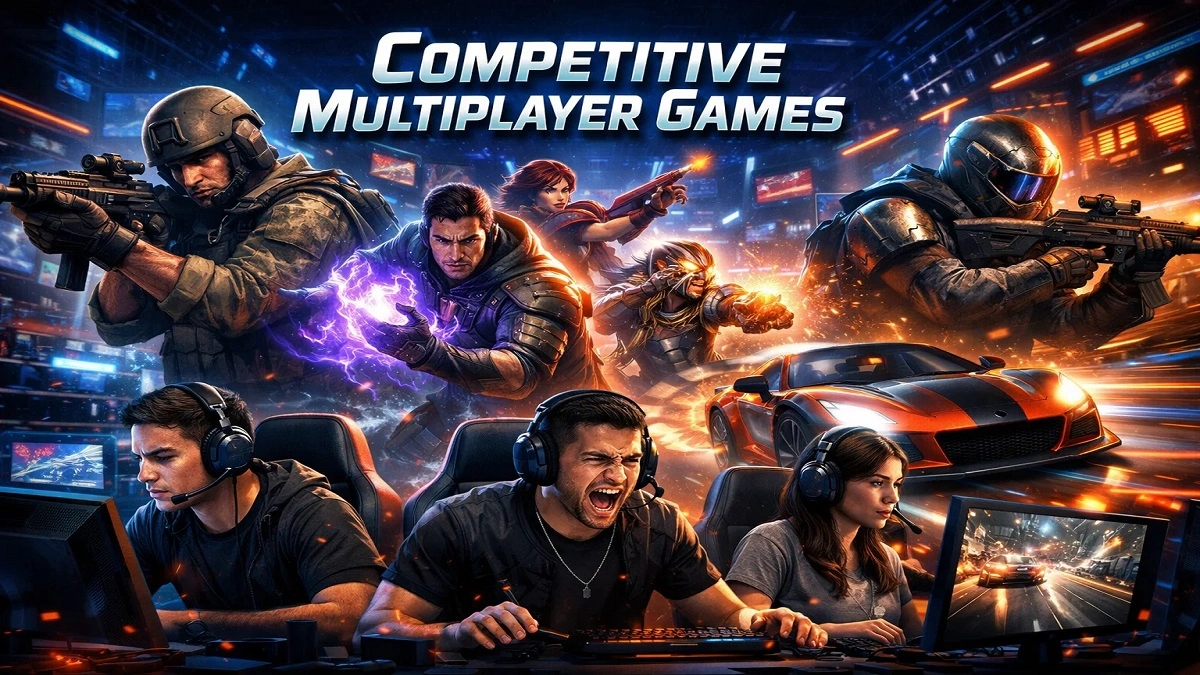Competitive online multiplayer games are a form of video games where gamers compete with each other by using skills, strategies, and decision-making. The online multiplayer games are accessed offline and online and represent trends of the year 2026.
The games range from fun multiplayer games to esports games of a professional level that support platforms like PC, mobile phones, and PS4. No matter whether you are a noob or somebody with strategies drawn up for your forthcoming life in esports, this ultimate gaming guide contains all the information that is required when it comes to the best multiplayer games.
What Are Competitive Multiplayer Games?
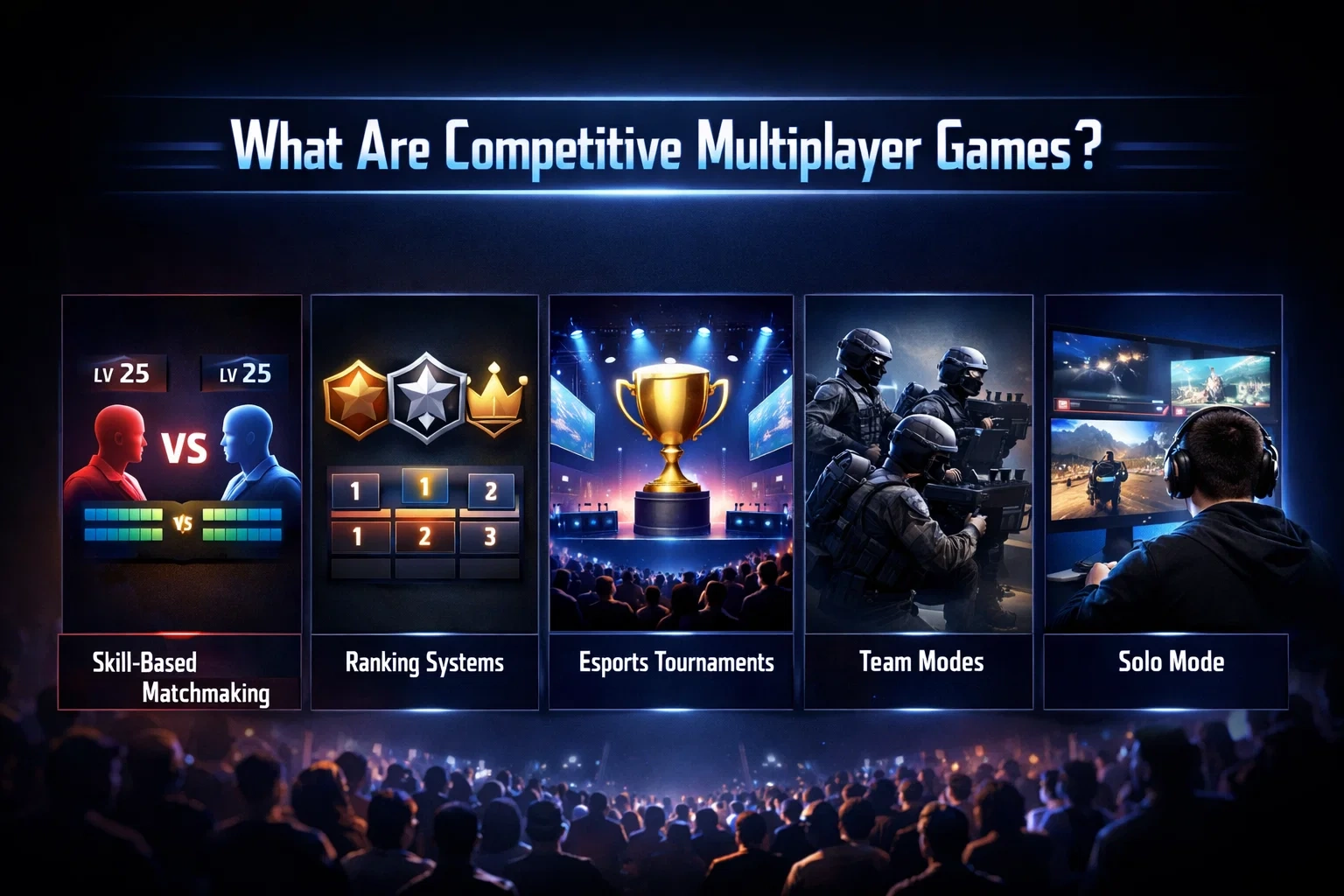
Online multiplayer games are those in which play game and compete with each other and win. Winning games, rising in the rankings, playing in tournaments, and getting real rewards are the goals.
Some multiplayer competitive games are perfect for different kinds of players because they can be played offline or over WiFi with friends.
The features of video game competitive multiplayer games are:
- Skill-based matchmaking
- Ranking systems
- Esports tournaments
- Team or solo modes
Players can expect realistic gameplay, cross-platform access, and chances to join India’s growing esports scene as upcoming competitive multiplayer games get better.
Main Features of Competitive Multiplayer Online Video Games
- Matchmaking based on skills
- Performance ranking and leaderboards
- Esports events
- Modes: solo and team
Modern multiplayer video games provide realistic gameplay experiences, platform independence, and genuine opportunities within the Indian gaming community.
Top Competitive Multiplayer Game Category (2026):
1. First-Person Shooters (FPS) games:
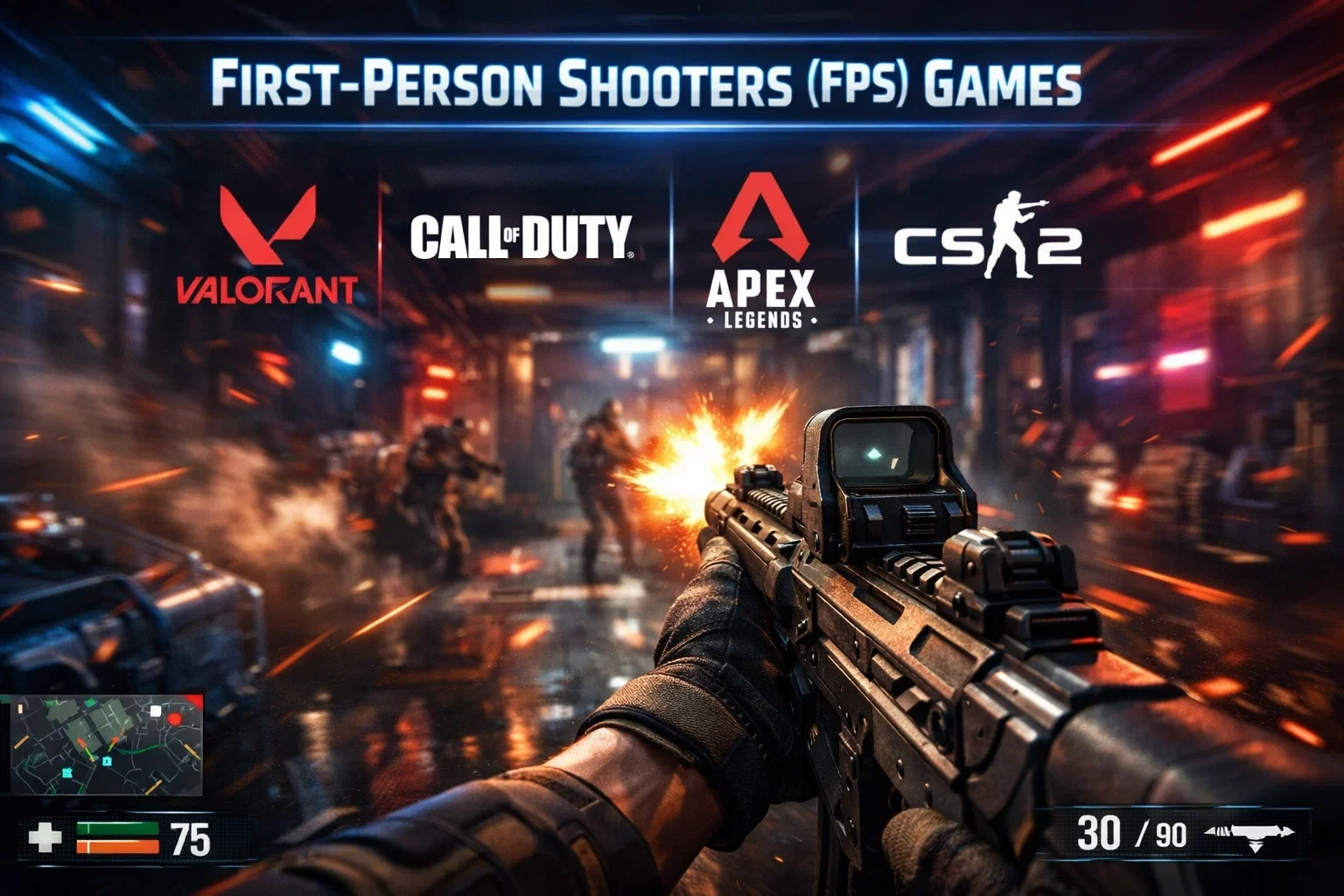
Aim, reflexes, and map knowledge are put to the test in FPS games.
Popular titles:
These are among the best competitive multiplayer games PC gamers enjoy, and are also in the category of competitive PC games.
Why they’re competitive:
- Quick response time
- Tactical gameplay
- Real-time fighting
They are perfect for players who want to pursue a career in esports, and they present some of the best PC multiplayer games available to date.
2. Battle Royal Games:
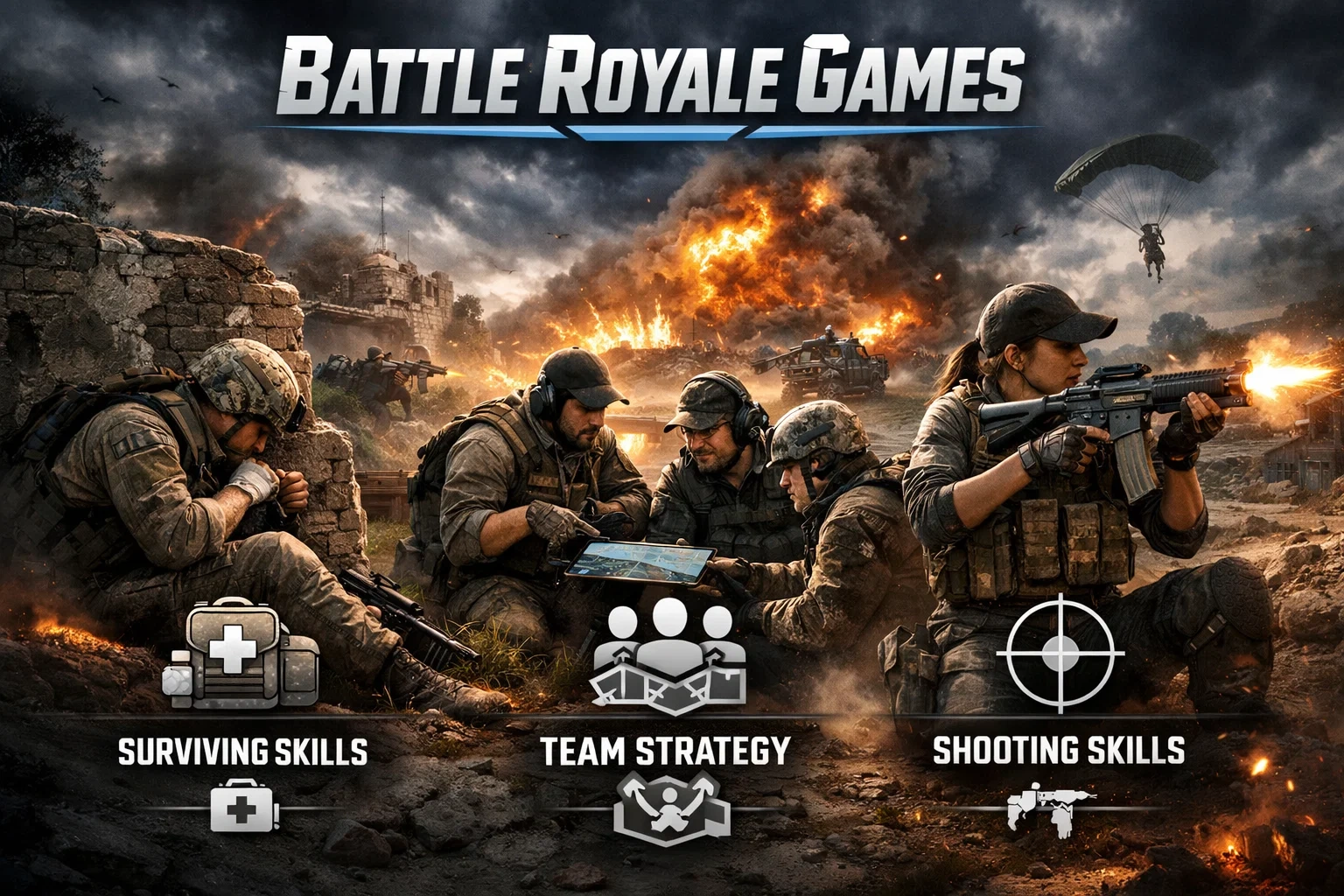
A big survival battle game where 100 players fight each other, and the one who survives till the end with their skill and game strategy wins.
Popular games:
- Fortnite,
- PUBG: New State.
These are among the most popular competitive multiplayer games Android users can enjoy, making them some of the best competitive multiplayer games Android and best competitive multiplayer games mobile.
Why it’s competitive:
- Surviving skills.
- Team strategy
- Shooting skills.
They are also fantastic multiplayer games PC and mobile gamers can enjoy at any time.
3. Multiplayer Online Battle Arena (MOBA)
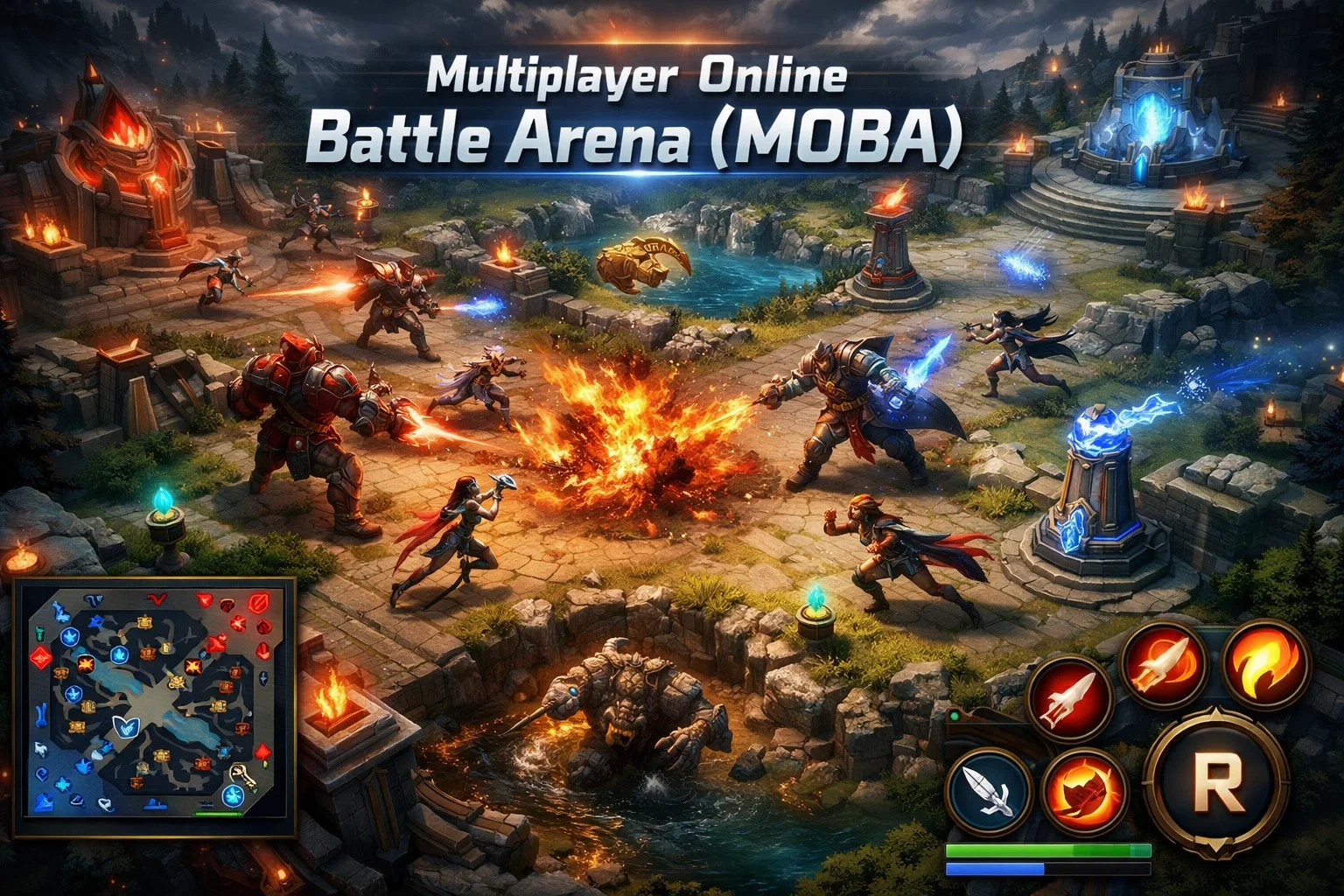
5v5 games with team strategy and timing.
Popular titles:
- League of Legends.
- Mobile Legends.
- Battleborn.
These are traditional video games with multiplayer gameplay, where team play is what determines victory.
Main focus:
- Map awareness
- Champion mechanics
- Control of objectives.
Available on PCs and consoles, here are some of the best PC games multiplayer fanbase is still enjoying in 2026.
4. Fighting games:
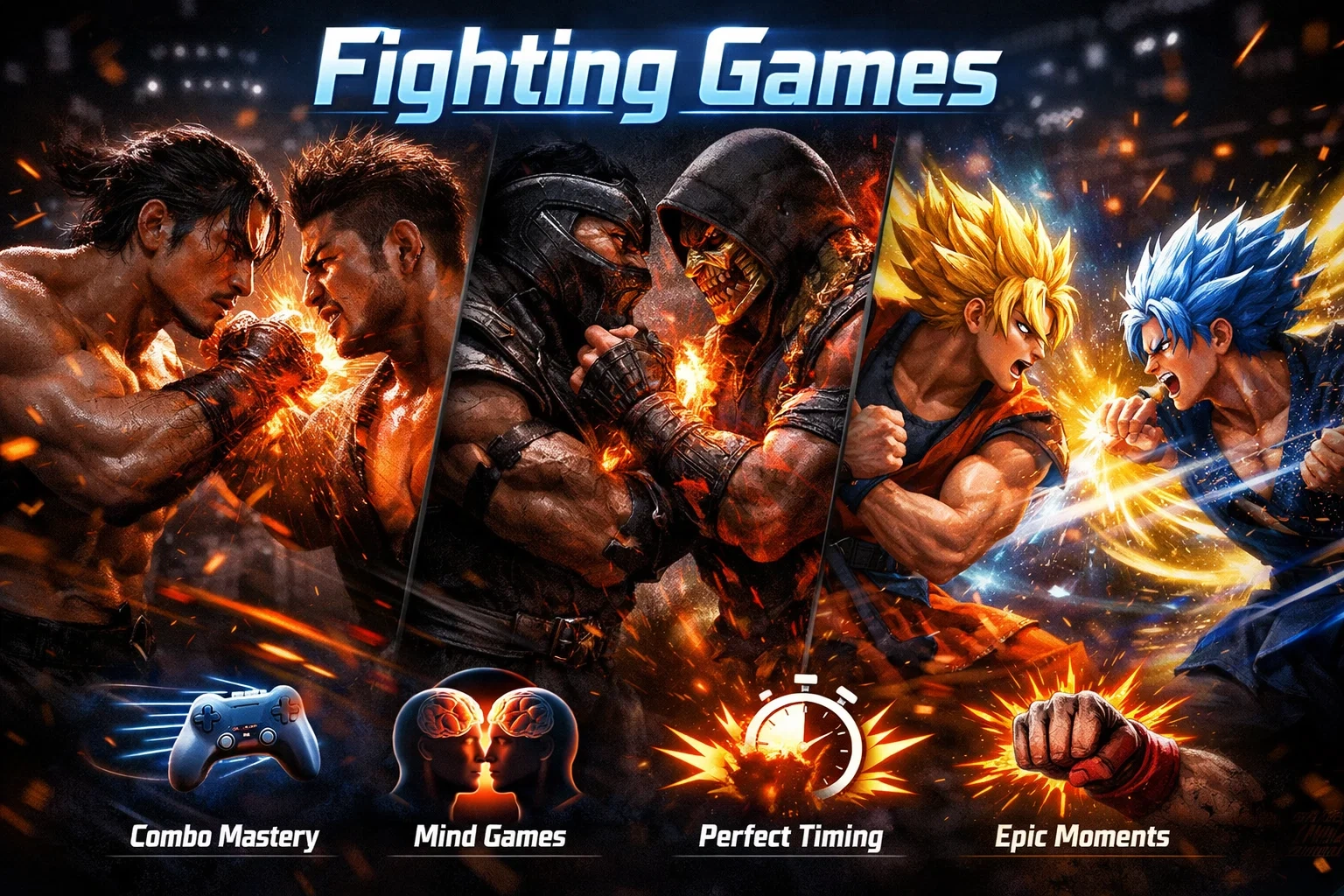
1v1 games with high skill and correct mechanical control.
Popular titles:
- Tekken 8
- Mortal Kombat
- Dragon Ball FighterZ
They are also known to be innovative online competitive games where timing and mind games matter.
Why people love it:
- Combos.
- Mind games.
- Correct timing.
Perfect for players who enjoy competitive multiplayer games, PS4, and offline matches.
5. Sports and Racing Esports:
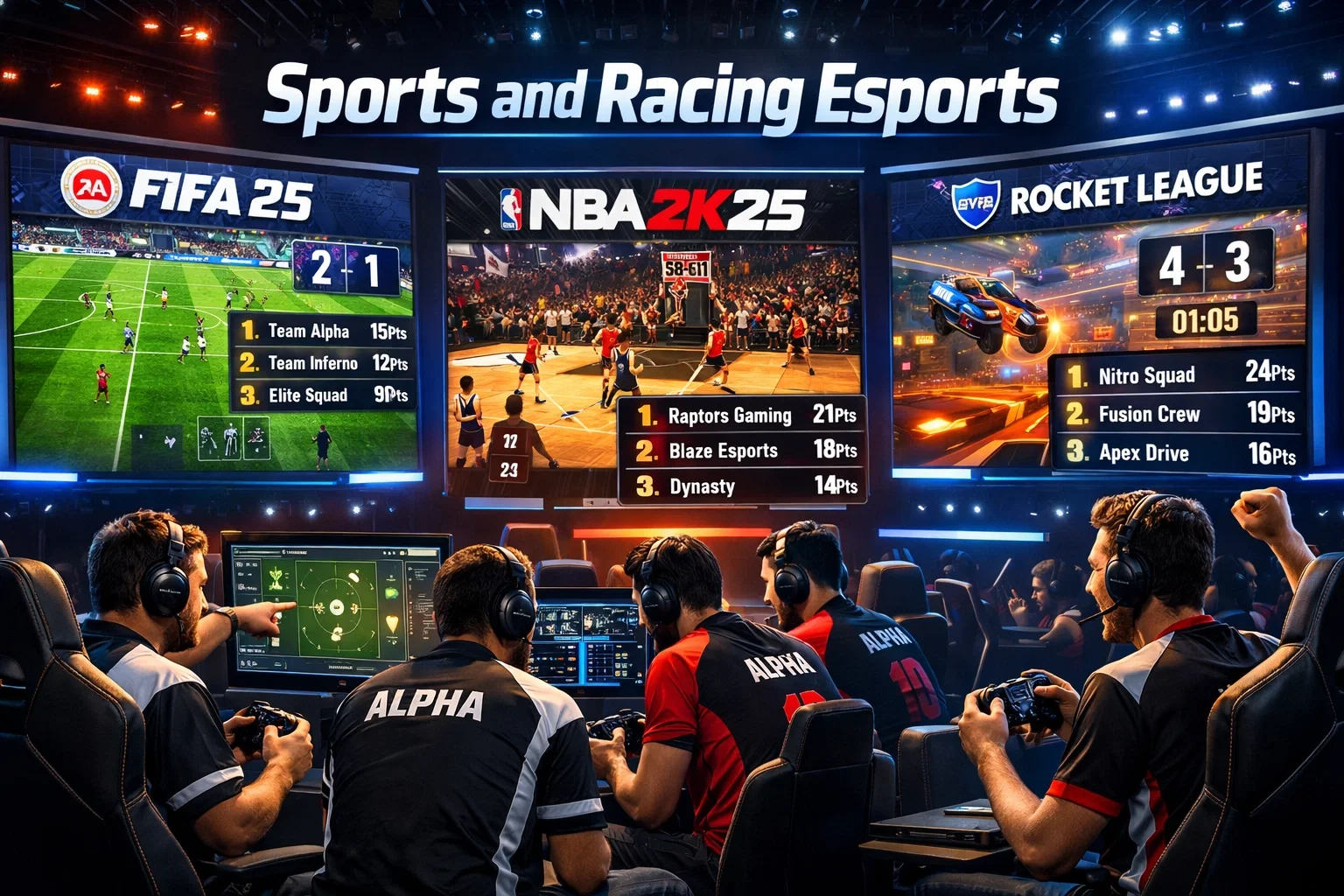
Simulations of true sports and high-speed racing.
Top Games:
- FIFA 25.
- NBA 2K.
- Rocket League.
These are excellent multiplayer video games that integrate strategy with team spirit
Competitive factors:
- Player rankings.
- Team bonding
- Strategy, like in real life.
Many players also enjoy playing browser-based multiplayer online games before engaging in competitive play.
Why Competitive Multiplayer Games are So Popular?
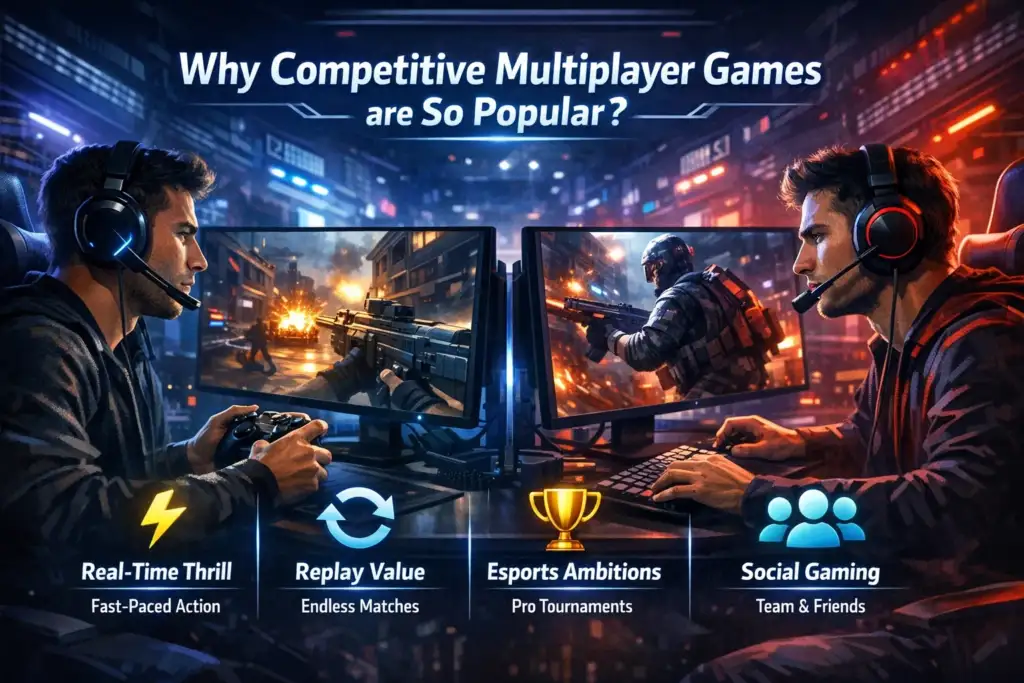
- Real-Time Thrill: Live competition with others makes for action-packed gameplay.
- Replay Value: Each match is unique; each session is a new challenge.
- Esports Ambitions: Some wish to become streamers or professional gamers.
- Social Gaming: These games promote squad play, communication, and friendship.
Even game titles that are inspired by creativity/logic and storytelling, such as Games like Roblox, Best Games Like GTA, and Games Like Limbo, have an impact on how competitive communities emerge in modern times.
Mindset for Success in Competitive Online Multiplayer Games:
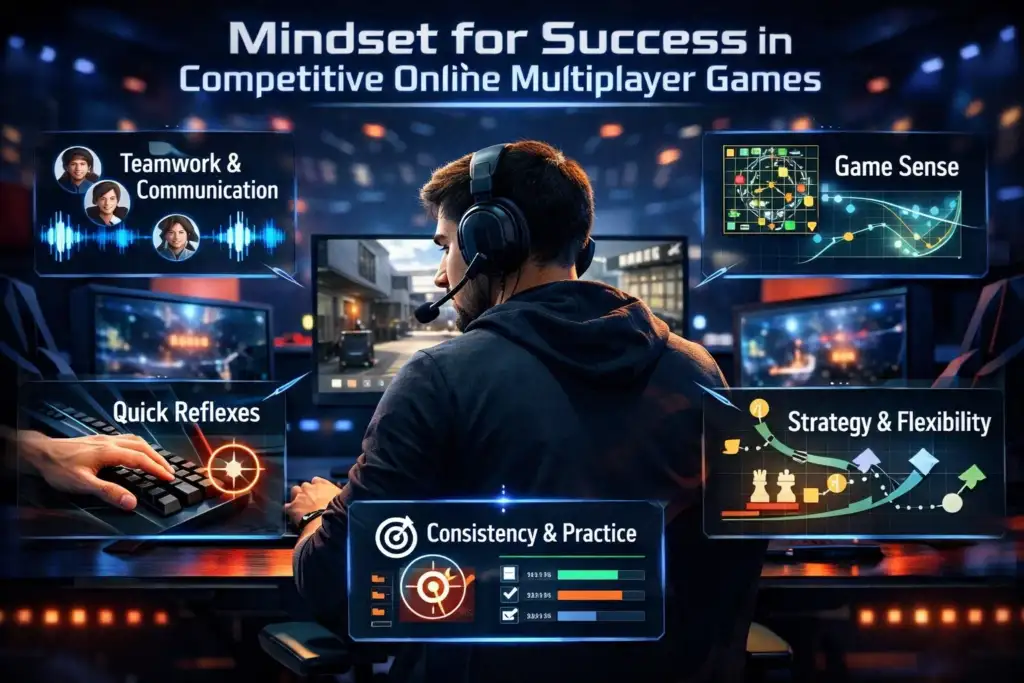
To succeed in competitive multiplayer games on PC, PS4, or mobile, you must master:
- Teamwork & Communication: Particularly in Valorant
- Game Sense: When to attack, rotate, or play protectively.
- Quick Reflexes: Essential for FPS and fighting games.
- Strategy & flexibility: Master how to counter the enemy mid-game.
- Consistency and practice: Maintaining a ranking is not a one-time event, for that requires consistency and practice.
With this mentality, it applies to all competitive multiplayer games mobile, PC, and console players.
Platforms You Can Play On:
| Platform | Type | Popular For |
| PC | High-performance gaming | FPS, MOBA, RTS |
| Consoles | PlayStation, Xbox, Switch | Fighting, racing, sports games |
| Mobile | Android & iOS | MOBA, Battle Royale, FPS |
| Cloud Gaming | Stadia, GeForce NOW | Cross-device accessibility |
| Browser | Online games | Multiplayer browser games to play with friends |
Multiple accessible and free options can be found on mobile platforms for competitive multiplayer games or multiplayer games over WiFi.
Competitive Games with Active Esports in 2025
| Game | Esports League/Tournament |
| Valorant | VCT Champions Tour |
| League of Legends | Worlds Championship |
| PUBG: New State Mobile | Global Championship Series |
| Counter-Strike 2 | ESL Pro League |
| Rocket League | RLCS |
These remain some of the best competitive online multiplayer games with massive fan bases.
Tips to Get Better at Competitive Multiplayer Games
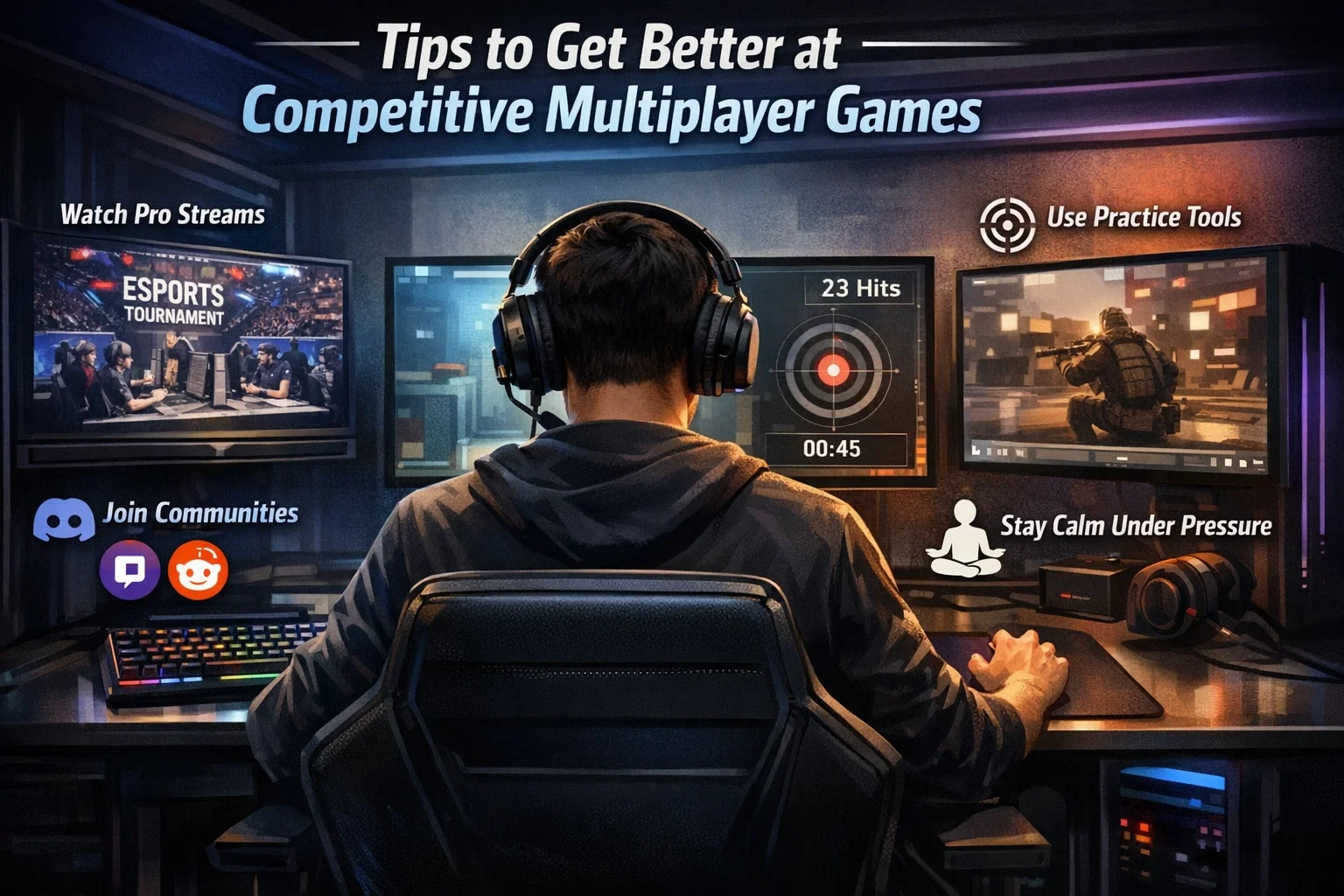
Want to rank faster in multiplayer games PC or mobile?
- Watch Pro Streams
- Use Practice Tools
- Record and Review Matches
- Join Discord and Reddit communities
- Staying calm under pressure
Final Thoughts: The Future of Competitive Multiplayer Games
By 2026, playing competitive multiplayer video games will be more than just a form of entertainment; it will become a way to grow your profile, career, and status in the community. There is something for everyone, no matter their choice for competitive multiplayer games on the PS4, PC, esports, or mobile platforms.
FAQs:
Ans: Call of Duty: Warzone Mobile, League of Legends, Counter-Strike 2, Apex Legends, PUBG Battlegrounds, and Rocket League. All these games have huge player bases and esports players to compete at their best.
Ans: Yes, you may get paid for playing competitive multiplayer games.
Ans: Choose a game, play regularly, watch pro players, participate in local events or online ladders, and improve your rank.
BeSureTechno brings you the latest in technology, gadgets, gaming, and how-to guides. Stay ahead with easy tips, reviews, and updates. Explore tech with us.
